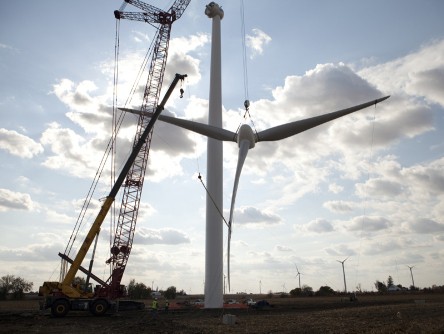Algonquin Power has been a disappointment, this investor says

For defensive-minded investors, a stock like Algonquin Power (Algonquin Power Stock Quote, Charts, News, Analysts, Financials TSX:AQN) has always held a level of attention as its healthy dividend has been a constant over the years. Meanwhile, the utility has garnered more interest from ESG investors as it shifts more of its business into the renewable energy category.
But while both the dividend and green credentials of Algonquin are pluses, what’s happened to the stock over the past couple of years (namely, not a lot of ground gained) could be viewed as a concern. Don’t worry about it, says portfolio manager Christine Poole of GlobeInvest Capital Management, who argues you shouldn’t be expecting fireworks from a name like AQN anyway.
“Algonquin Power is a utility stock that we own in our client portfolios, and we like the fact that about a third [of its operations] are in renewables and that I think that will continue to grow,” said Poole, managing director at GlobeInvest, who spoke about Algonquin on a BNN Bloomberg segment on Wednesday.
“They’re well-positioned in the US to grow as they green out their fleet in the US, where most of their earnings are actually from at 90 per cent,” she said. “We bought it for the dividend yield and a bit of share price appreciation.”
“When we buy a utility stock we’re not expecting double-digit gains [but] the share price has been a bit disappointing,” Poole said. “I would say that to a certain extent Algonquin participated in the run-up in the whole renewables space last year when [US President Joe Biden] was getting reelected and there was a lot of money flowing into that area. Because of their renewable exposure Algonquin participated and the sector has pulled back.”
Algonquin Power has over $16 billion in assets in power generation, transmission and distribution, with its business divided into Regulated Services covering rate-regulated electric, natural gas, water and wastewater treatment and electricity transmission and Renewable Energy which covers its wind, solar and hydroelectric generating projects.
The majority of AQN’s renewables (currently totalling about 3.2 GW) are in wind power, where the company completed in August the 51 per cent acquisition of four wind facilities in Texas from RWE Renewables Americas. Moreover, Algonquin is pursuing a Greening the Fleet initiative where it looks to decommission coal-fired power plants and replace them with wind power, currently seeing progress in the US Midwest where it has now 600 MW of new wind generating facilities across Missouri, Arkansas, Oklahoma and Kansas.
More on the green front, Algonquin last week announced its goal of becoming a net-zero power company by 2050, with the path laid out in a new ESG (environmental, social and governance) Report. The company said it will aim to make 75 per cent of its power generating assets renewable by the end of 2023, compared to the 63 per cent mark where it currently stands, and hit the 2,000 MW number in renewables by the end of 2023 versus its current capacity at 1,418 MW.
“Algonquin started 33 years ago as a developer of renewable energy facilities, and today we own, operate, or have interests in over 4,000 MW of renewable capacity. We are also an early pioneer in building renewables into rate base,” said Arun Banskota, President & CEO of Algonquin, in an October 5 press release. “Today’s announcement of our net-zero by 2050 target, together with our interim 2023 goals, reinforces our commitment to maintaining a leadership position on our sustainability journey.”
Algonquin’s share price went from about $18 at the start of 2020 to as high as $22.50 by February of this year but the stock has pulled back since and has lately been trading between $18 and $20 per share.
Poole says the threat of a rising interest rate environment shouldn’t keep investors away from Algonquin, either, since the company is likely to keep raising its dividend.
“One of the headwinds for utilities is potentially higher interest rates because high interest rates mean that there’s a competing product for utilities and their dividend yields. I still think that’s kind of a near-term, knee-jerk reaction. I think Algonquin’s yield which is just under 4 per cent is very attractive and I think they can continue to grow that dividend annually,” Poole said.
“And so and that’s another reason why we’d like Algonquin because when we choose utility names we want to choose companies that we think have the visibility to increase their dividend annually, and that will add act as a buffer when interest rates do slowly start to move up. Then, that the dividend is also moving up, so then your yield is keeping pace with the increasing interest rate,” she said.
“So, I would keep buying it here and I would continue to buy it and hold it for clients,” she said.


